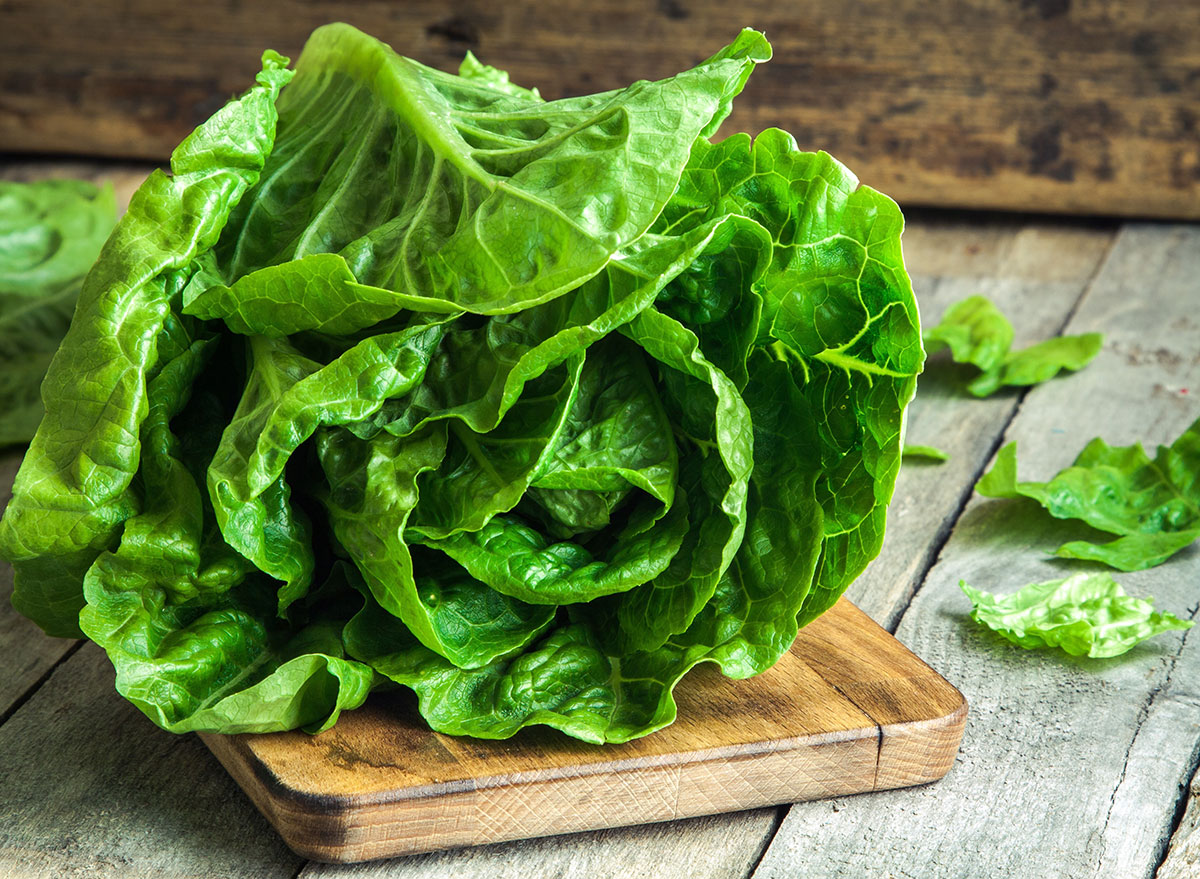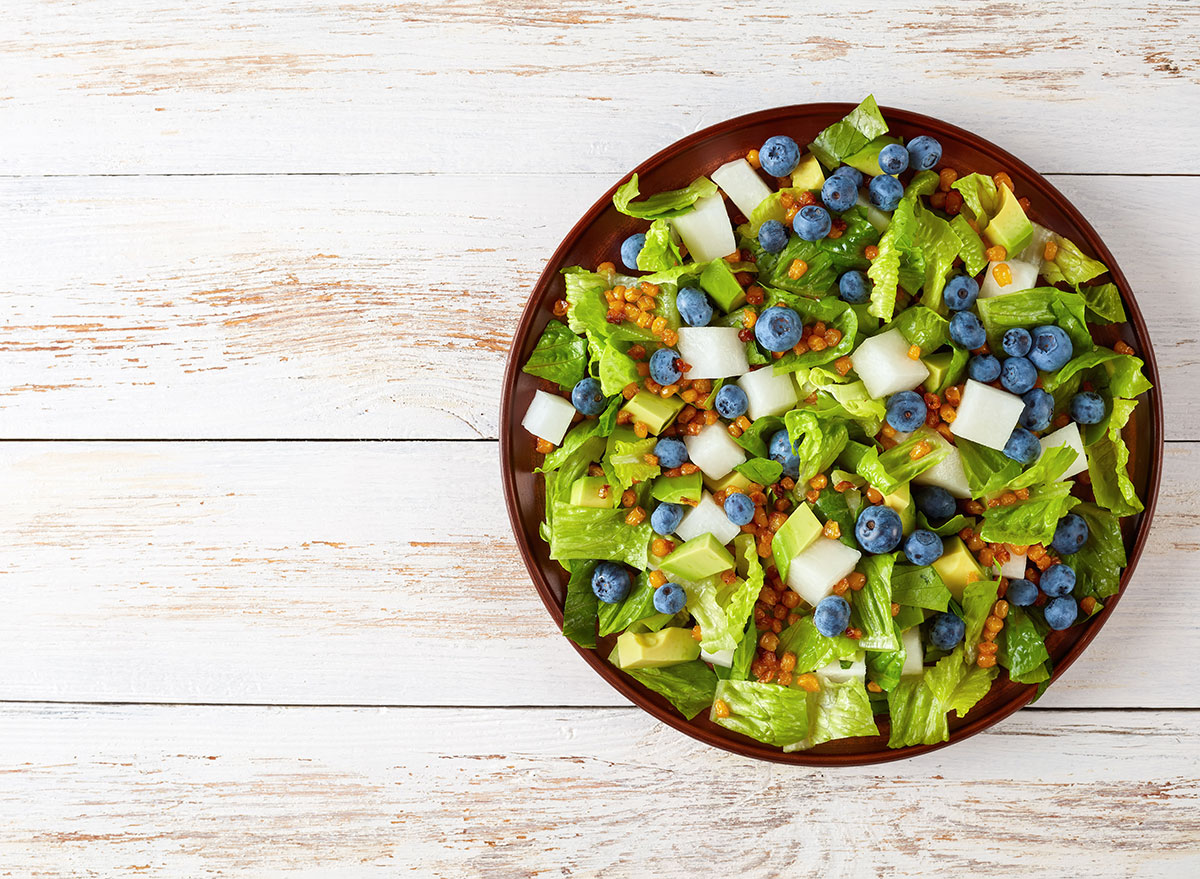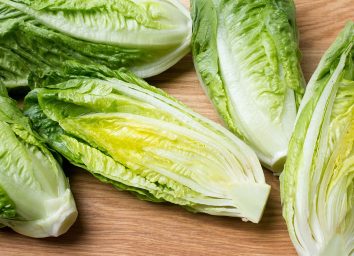One Major Effect of Eating Romaine Lettuce, Says Dietitian

Romaine lettuce has garnered quite a name for itself after becoming TikTok famous thanks to one influencer’s nighttime lettuce water routine. Turns out, the social media claims aren’t so far off; romaine has quite a lot to offer outside of making people sleepy.
Romaine is a delicious, sturdy green lettuce that works well shredded for a taco salad, as a vessel for chicken lettuce wraps or plain as a filler in your sandwich. However, the taste-bud satisfaction isn’t the only perk this green has to offer.
Romaine lettuce, like all dark leafy greens, offers a range of vitamins and is a potent source of Vitamin K in particular. A one-cup serving of romaine provides upwards of 60% of our daily need for Vitamin K.

One of the main reasons green vegetables are powerhouses, Vitamin K assists in blood clotting, bone health, and plays a role in calcium absorption. There are different forms of Vitamin K: K1 and K2. Vitamin K1 is more well known as it is in all leafy greens and helps improve blood clotting and maintain bone health. Vitamin K2 is a lesser-known form of Vitamin K and primarily works to build strong bones.
Vitamin K plays a critical role in bone metabolism, specifically ensuring strong bone mineral density. The darker the green, the more concentrated it is with Vitamin K. Eating the top halves of your romaine greens gives your bone health a boost!
Healthy bones are created in stages. Starting with nutrition, we can ensure we promote healthy bones by emphasizing select vitamins and minerals in our diet. Vitamin D, Vitamin K, and calcium work cohesively to create a healthy bone matrix.
Vitamin K particularly plays an active role in bone density as it contributes to the formation of osteocalcin—a compound that is a precursor to improved bone mineralization through binding with calcium. Vitamin K also acts as a secondary assistant helping the body absorb and retain optimal calcium levels—a mineral that is also a bone health superstar.
Without enough vitamin K, you may run the risk of vitamin K deficiency leading to low bone density and osteoporosis. Osteoporosis, or brittle bones, can lead to bone fractures and fall risk as we age. One study found that consuming increased amounts of foods with Vitamin K, significantly reduced risk of bone fractures in adults with osteoporosis.
Get even more healthy tips straight to your inbox by signing up for our newsletter! After, read these next:
- The 20 Best Vitamin K-Rich Foods
- One Major Side Effect of Not Eating Enough Calcium, New Study Says
- This Diet Is Bad for Your Bones, New Study Finds








